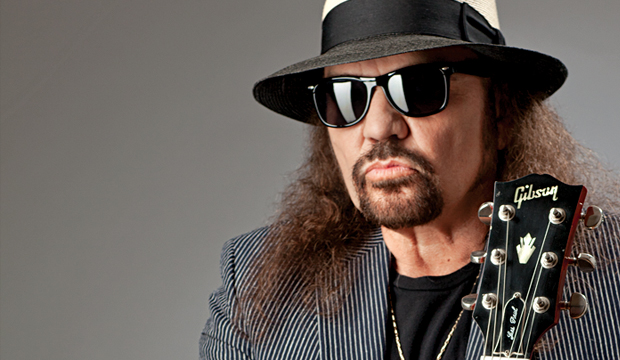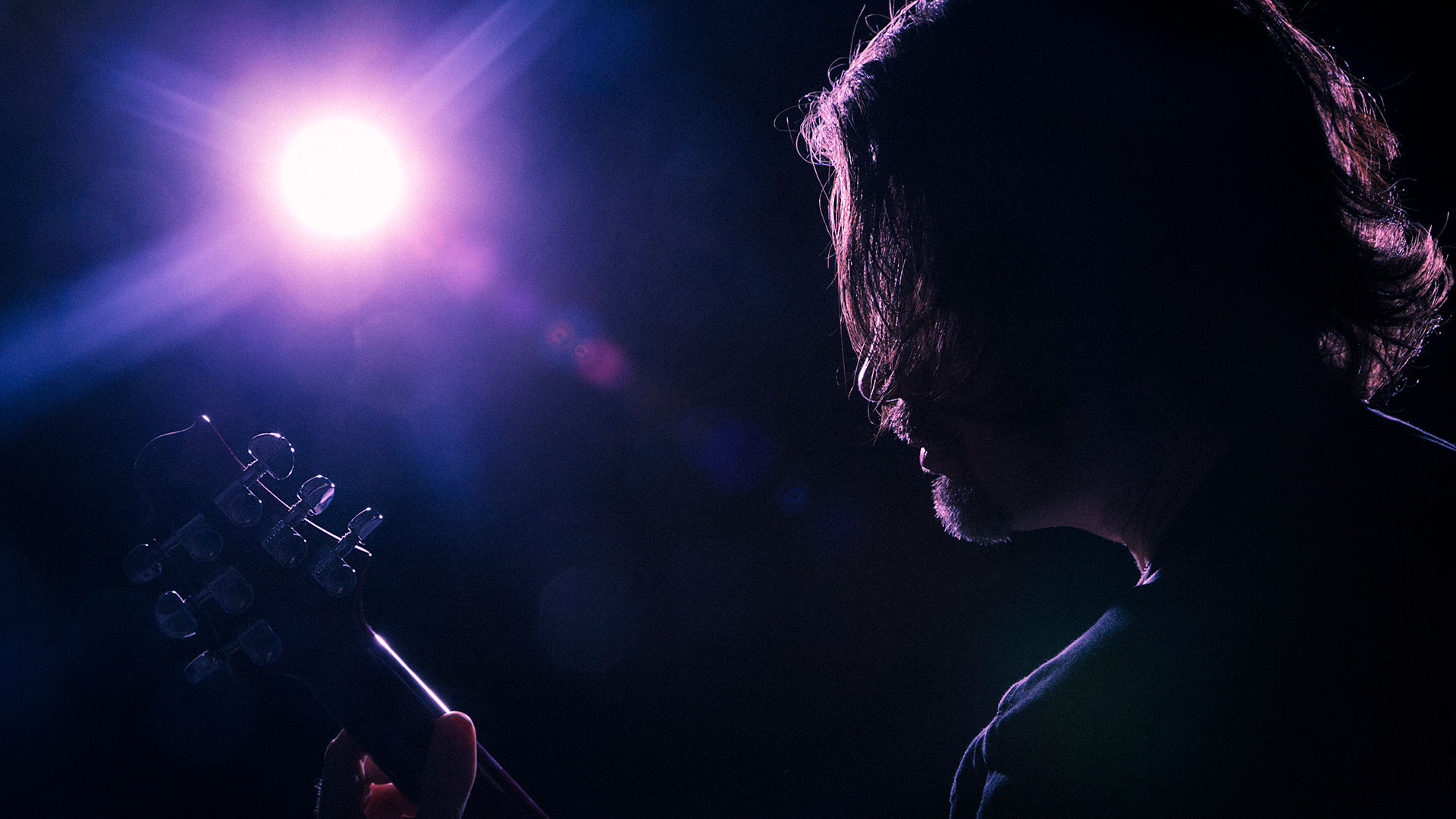Interview: Lynyrd Skynyrd's Gary Rossington Discusses 'Last of a Dyin' Breed'
All the latest guitar news, interviews, lessons, reviews, deals and more, direct to your inbox!
You are now subscribed
Your newsletter sign-up was successful

"You’ll have to speak up a bit,” Gary Rossington says, practically shouting into the phone. The Lynyrd Skynyrd guitarist and co-founder is speaking to Guitar World from “out in the mountains” in Jackson Hole, Wyoming, and cell service is sketchy. Which is fine by him—Rossington is taking advantage of a short break in the band’s schedule for some quiet time with his wife and grandkids.
And he’ll need the rest. Skynyrd are currently gearing up for the release of their new and 13th studio album, Last of a Dyin’ Breed, as well as a cross-country tour in support of it. Rossington says he’s particularly looking forward to playing the new material onstage. “We’ve already tried out a few songs, like the title track, and they’ve gone over great,” he says. Which is not surprising. In contrast to the country leanings and more politicized tone of the band’s previous album, 2009’s God & Guns, the new effort is a straight up shit-kickin’ southern hard-rock record in the grand tradition of, well, Lynyrd Skynyrd.
“I think that God & Guns turned out a little more ‘country’ than we wanted it to be,” Rossington admits. “But that was more of the thing a few years ago. This one we feel is more like how we did it in the old days. Simple songs with good riffs, good choruses and a little bit of guitar solo. Just get in and get out and have a good time doing it.”
Indeed, Last of a Dyin’ Breed Breed is infused with a vibrancy that belies the fact that Skynyrd—which in addition to Rossington, the group’s sole remaining original member, also includes guitarists Rickey Medlocke and Mark “Sparky” Matejka, singer Johnny Van Zant, drummer Michael Cartellone, pianist Peter Keys and new bassist (and former Black Crowes member) Johnny Colt—have now been releasing records for just under 40 years. The album stands as another rock-solid entry in their legendary canon, with midtempo southern stompers like “One Day at a Time” and “Homegrown,” soaring ballads like “Ready to Fly” and “Start Livin’ Life Again,” and rollicking, slide-guitar-infused statements of purpose like the title track.
And, according to Rossington, Skynyrd are far from done. “As long as the fans keep wanting to hear new records from us every few years, we’ll keep making them,” he says.
In fact, today, at 60, Rossington says that he loves playing as much as he ever has—if not more. “Back in the day, it was hard to appreciate it sometimes,” he says. “We were young and crazy and not really keeping up with what was going on. We were too busy just doing it. Now I’m more laid-back and a little older and more experienced, and I’m kinda digging it. I feel like I have more time to enjoy everything.”
Given the name of the new album, do you feel that, musically speaking, Lynyrd Skynyrd is in fact the “last of a dying breed”?
All the latest guitar news, interviews, lessons, reviews, deals and more, direct to your inbox!
I do. But it’s not just us; it’s all the bands that were around in the Seventies and Sixties, and even the Eighties. There were a lot of bands touring on the club circuit and the concert scene with great guitar players, and that’s a dying breed. Now it’s more singles-oriented acts and pop musicians and hip-hop guys. It’s not really blues-based guitar players getting the band together and touring. So it’s changed. The old bands like us are few and far between.
On your current tour you’re playing shows with both the Allman Brothers and ZZ Top. As far as southern rock is concerned, you three might comprise the entire breed right there.
[laughs] Yeah, right. That’s about it! Almost everybody else is gone, unfortunately, or just not playing anymore.
It’s been reported that you took a “live-in-the-studio” approach to recording the new album.
We did. Everybody had their parts and we’d just go in and play it together, so to speak. The only things we overdubbed were vocals and a few guitar leads. Otherwise we had bass, drums, keyboards and three guitars all going at once in a big room in Nashville. It gives the album a real band feel. We just miked up and went for it. It was really fun.
Is that how you used to do it back in the day?
That’s the way we always recorded back in the Seventies. Maybe we’d fix something up later or play it a few times to get the right feel. But that was it. And that was the way bands did it in general. There wasn’t so much technology around. There wasn’t wireless or digital or anything like that. So you had to really play. [laughs]
What gear did you use on the record?
My main guitars were my Les Paul ’59 reissues. Those are my babies. For amps I used my old Peavey Mace that I’ve had since the early days, and also an old Marshall 100-watt that I got back in the Seventies in England. It’s the real deal. Otherwise, I don’t use a lot of pedals and gadgets. Maybe a little compression or wah on a couple songs. But generally I just go straight in.
From a guitar standpoint, how would you describe the roles that you, Rickey and Sparky each play in the band?
Well, it’s like how in the original band there was always a bit of a different style between myself and [deceased co-founding guitarist] Allen Collins. That’s the way it is with me and Rickey. Live, Rickey plays all of Allen’s parts, and on the new stuff he still plays a little like him. Because we all grew up playing together; Rickey was in the very first version of the band [Medlocke played drums in an early incarnation of Lynyrd Skynyrd]. So he saw how we were playing and he was playing right along with us. And then Sparky adds the Steve Gaines or Ed King part to it—that faster style of playing on a Strat. With the old stuff he’ll cover those parts, and on the new stuff he’s so good he can do anything.
He’s a pretty amazing player.
I’d say he’s one of the best guitar players I’ve ever seen. We actually have to kind of tell him to slow down here and there. He plays so much hat you gotta kind of put him in his place. But he’s a freak. He plays every style, and he’s a really good picker. Little bastard. [laughs]
Speaking of amazing guitarists, you also had John 5 help out on the record.
He wrote a bit with [producer] Bob Marlette out in California. And he plays on the song “Start Livin’ Life Again.” It’s a blues tune with just two guitarists—the other is Jerry Douglass, who plays Dobro. And he’s probably the best Dobro and slide lap player in the world.
John’s an interesting character. The way he plays is not what you would expect from looking at him.
[laughs] Oh yeah. The first time we met him, he was coming off a photo shoot with Marilyn Manson. He had his eyebrows shaved and these big stacked shoes on and all this crazy-looking stuff. But he’s very down to earth and a sweet little kid. And he’s so good. He’s like Sparky. He can play anything.
Skynyrd has so many huge hits. Do you find it difficult to find space for new songs in the set list when you go out on tour?
Oh yeah. We still love playing all the old stuff, but even there, we try to change a song or two every tour to keep things fresh. And we like to add in as many of the newer ones as we can just for a change of pace. The crowds seem to like it, too.
Do you ever feel in competition with your back catalog?
Not really, because we don’t think like that. We just try to make sure that people know what the band’s about. We’re songwriters and creatives, and that never stops. It just keeps coming. And every now and then we try to get it out of us and let the people hear it. And hopefully they’ll like the new stuff just like they do the old.
Those old songs continue to endure. I read somewhere that “Sweet Home Alabama” has registered something like two million ringtone downloads.
I can’t believe people still love it so much. I’m so touched and honored by that. It’s great. It’s really special, not just for me but all the members of the band, past and present, whether they’re with us or not. It goes to show that the music is still around. I just want to keep the name out and keep it going and let people hear it as long as I can.
For all the achievements you’ve had over your career, I’m sure selling millions of ringtone downloads is not one you could have ever imagined.
[laughs] It blows my mind. It really does. Back when we wrote the song there wasn’t cell phones or the internet or any of that. There wasn’t really much in the way of computers, even. I don’t even think we had Pac-Man yet.
